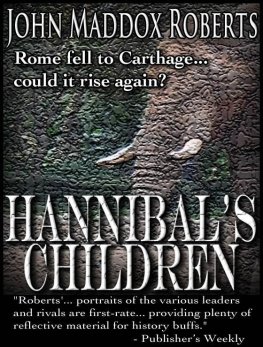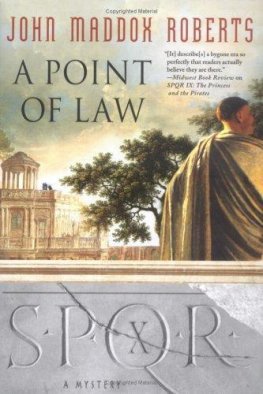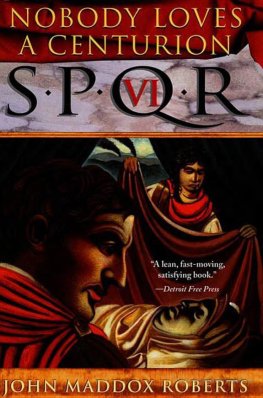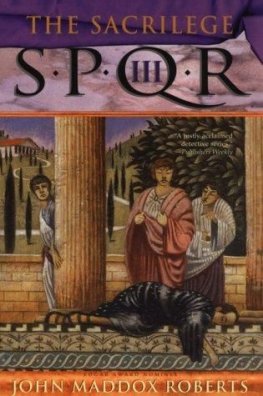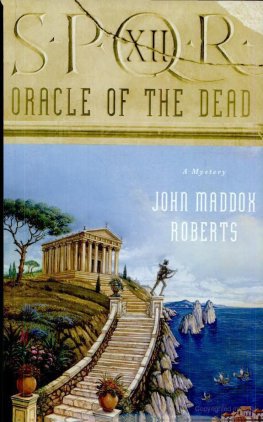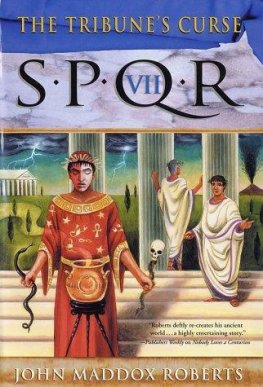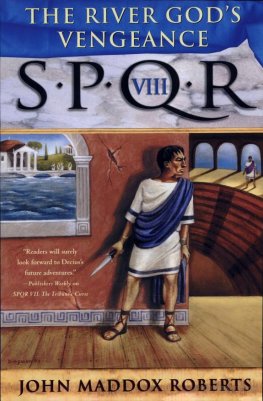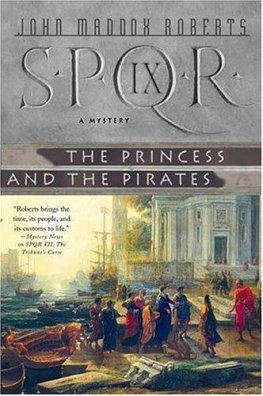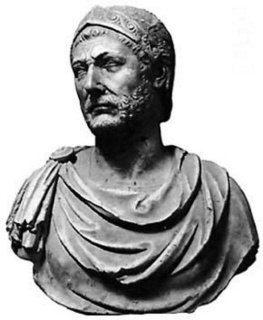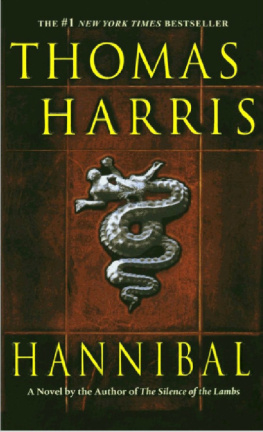John Roberts - Hannibal's children
Here you can read online John Roberts - Hannibal's children full text of the book (entire story) in english for free. Download pdf and epub, get meaning, cover and reviews about this ebook. genre: Science fiction. Description of the work, (preface) as well as reviews are available. Best literature library LitArk.com created for fans of good reading and offers a wide selection of genres:
Romance novel
Science fiction
Adventure
Detective
Science
History
Home and family
Prose
Art
Politics
Computer
Non-fiction
Religion
Business
Children
Humor
Choose a favorite category and find really read worthwhile books. Enjoy immersion in the world of imagination, feel the emotions of the characters or learn something new for yourself, make an fascinating discovery.
- Book:Hannibal's children
- Author:
- Genre:
- Rating:5 / 5
- Favourites:Add to favourites
- Your mark:
- 100
- 1
- 2
- 3
- 4
- 5
Hannibal's children: summary, description and annotation
We offer to read an annotation, description, summary or preface (depends on what the author of the book "Hannibal's children" wrote himself). If you haven't found the necessary information about the book — write in the comments, we will try to find it.
Hannibal's children — read online for free the complete book (whole text) full work
Below is the text of the book, divided by pages. System saving the place of the last page read, allows you to conveniently read the book "Hannibal's children" online for free, without having to search again every time where you left off. Put a bookmark, and you can go to the page where you finished reading at any time.
Font size:
Interval:
Bookmark:
John Maddox Roberts
Hannibals children
Prologue
At the beginning of the third century B.C. the western Mediterranean was dominated by Carthage, the greatest citystate of North Africa. The Carthaginians were a maritime people, trading throughout the Mediterranean and into the Atlantic beyond the straits of Gibraltar. They sailed northward as far as Britain and may have sent expeditions around the southern tip of Africa. The might of their navy was legendary.
The Carthaginians were descendants of the Phoenicians, and their language was Semitic: related to Arabic, Assyrian, Hebrew and others of that once-numerous language group. Their religion was polytheistic, its principal deities being Baal-Hammon (often miscalled Moloch) and the goddess Tanit. Many of their gods demanded human sacrifice and the Carthaginians were not sparing in their offerings. In extreme circumstances, they sacrificed even their own children, and the noblest families took great pride in delivering their children to the flames of Baal-Hammon.
Following the death of Alexander the Great, Carthage resisted the spread of Greek colonies and influence in the area it regarded as its own. It founded colonies in Spain to counter the power of the Greek colonies already there (Cartagena was originally Cartago Nova: New Carthage). When it established a military presence on the island of Sicily, Carthage came into conflict with a new, upstart power that had established hegemony over the Italian peninsula: Rome.
The Romans were an agrarian people with a republican form of government. In character, they were as unlike the Carthaginians as possible. Where the Carthaginians were seafarers and were content with controlling coastal cities, the Romans were reluctant sailors and had a passion for land above all things. They seized as much of it as they could and never let it go. The Carthaginians preferred to use mercenary troops in their land wars, using citizens to man the navy and to protect Carthage, which was always in danger from an uprising by its subject North African possessions.
For Romans, military service was every citizen's duty, and the surest way to advancement was through distinguished service in the legions. The Romans approached war in a manner like no other people. They thought little of individual heroics, preferring subordination of even the noblest men to the machinelike teamwork of the legion. They saw war as a task, not a glorious adventure, and they went about it in a methodical manner. They understood that wars were won as often by the pickaxe and spade as by the sword.
When they were beaten, they held an inquiry to determine what had been done wrong and then corrected the error. Even when they were victorious, they assessed what had worked and what had not, and made corrections. Ro-mans seldom made the same mistake twice. Perhaps most amazingly, unlike any other people of the time, the Romans were not demoralized by defeat. If their army was destroyed, they raised another army, and then another if necessary. They did not blame defeat on the anger of the gods or the superiority of the enemy. Men made mistakes, and mistakes could be corrected. They knew that the ultimate weapon was the discipline and cohesion of the legion.
The Romans called the Carthaginians Puni. It was their pronunciation of the Greek word Poeni: Phoenician. Hence the wars that followed were called the Punic Wars. There were three Punic Wars. The second of them was among the most decisive in human history.
The first war with Carthage ended with Roman victory. Rome beat Carthage on land and in the usual methodical fashion learned to sail and actually beat them at sea. Rome gained the island of Sicily with its rich cities and fertile land. Then for several years Carthage was occupied by a revolt of its mercenaries and subject cities, a war so savage that it appalled even the Romans, Greeks and other Mediterranean nations, accustomed though they were to almost continuous warfare. The Romans were distracted by an incursion of Gauls in northern Italy.
Eventually warfare resumed between Rome and Carthage, and the second war was very different from the first. This time, the commander of the main Carthaginian army was Hannibal, and the Romans were to learn at bitter cost that he was one of history's handful of truly great generals. In one battle after another he smashed the Roman legions, and he did it with armies that were inferior both in numbers and quality. He won by sheer generalship and it was something the Romans could not match.
At Trebia, Lake Trasimene and, most devastatingly of all, at Cannae, Hannibal crushed his enemies. Cannae stands to this day as possibly the most perfectly planned and executed battle in all of history. Devastated, Rome scraped together another army.
History tells us that Rome appointed Quintus Fabius as Dictator, and Fabius refused to fight Hannibal in open battle, that instead he harassed his rear and his lines of communication, gradually wearing him down, never giving him a chance to employ his fabled generalship. This tactic earned him the surname Cunctator: the Delayer. Hannibal looked for allies and sought an alliance with the young King Philip V of Macedon, who had inherited the formidably professional army of that nation. Philip promised aid but never showed up in Italy.
In time, Publius Cornelius Scipio, a soldier of qualities comparable with Hannibal's, took the war to Spain and cut Hannibal off from his land route to Carthage. Then Scipio went to Africa and Hannibal was forced to leave Italy in order to protect the homeland. At Zama, Hannibal met with defeat for the first time and Scipio earned the surname Africanus. Rome was saved.
There was a third war, and this time Carthage had no Hannibal. The Romans conquered Carthage and destroyed it with a thoroughness that passed into proverb.
This is the history we know. The Second Punic War was one of the rare occasions in history where, had it turned out differently, everything afterward would have been utterly different and the Western world would have been dominated by a people as different from us as the Aztecs.
In Hannibal's Children, things turned out differently.
Chapter 1
Rome, 215 B.C.
Behind them were the seven hills and the sacred city of Quirinus. Before them lay the plain, and upon the plain the army of Carthage stood in unprecedented power. For the first time their general had numerical superiority. He had not needed greater numbers at Lake Trasimene, nor at Cannae. On those fields he had ambushed, surrounded and crushed two Roman armies larger than his own, feats of generalship worthy of a war god.
Upon a wooden tower erected behind the huge host stood two men clad in glittering iron and bronze. One of them, Philip of Macedon, had provided the numbers. His phalanx held the center of the line, the sixteen-foot pikes standing like a dense forest in the morning sun. The Romans had no fear of Philip or his pikes, however great their numbers. The rest of the army was divided in two parts and held the flanks: check-trousered Gauls with lime-washed hair and blue patterns painted on their bodies, gripping long, slashing swords; black Nubians covered with ocher and chalk, holding short spears and long shields of zebra hide; squat Spaniards with their hair in plaits who fought with little round bucklers and down-curving falcatas that could take a man's leg off with a single swipe. There were Cretan archers and slingers from the Balearacs and light horsemen from Galatia. Libyans in white tunics rode bareback with quivers of javelins slung across their shoulders. There were Ligurians and Spartan mercenaries and men from half the nations of the world standing under arms, ready to take the seven hills for Carthage.
Font size:
Interval:
Bookmark:
Similar books «Hannibal's children»
Look at similar books to Hannibal's children. We have selected literature similar in name and meaning in the hope of providing readers with more options to find new, interesting, not yet read works.
Discussion, reviews of the book Hannibal's children and just readers' own opinions. Leave your comments, write what you think about the work, its meaning or the main characters. Specify what exactly you liked and what you didn't like, and why you think so.

